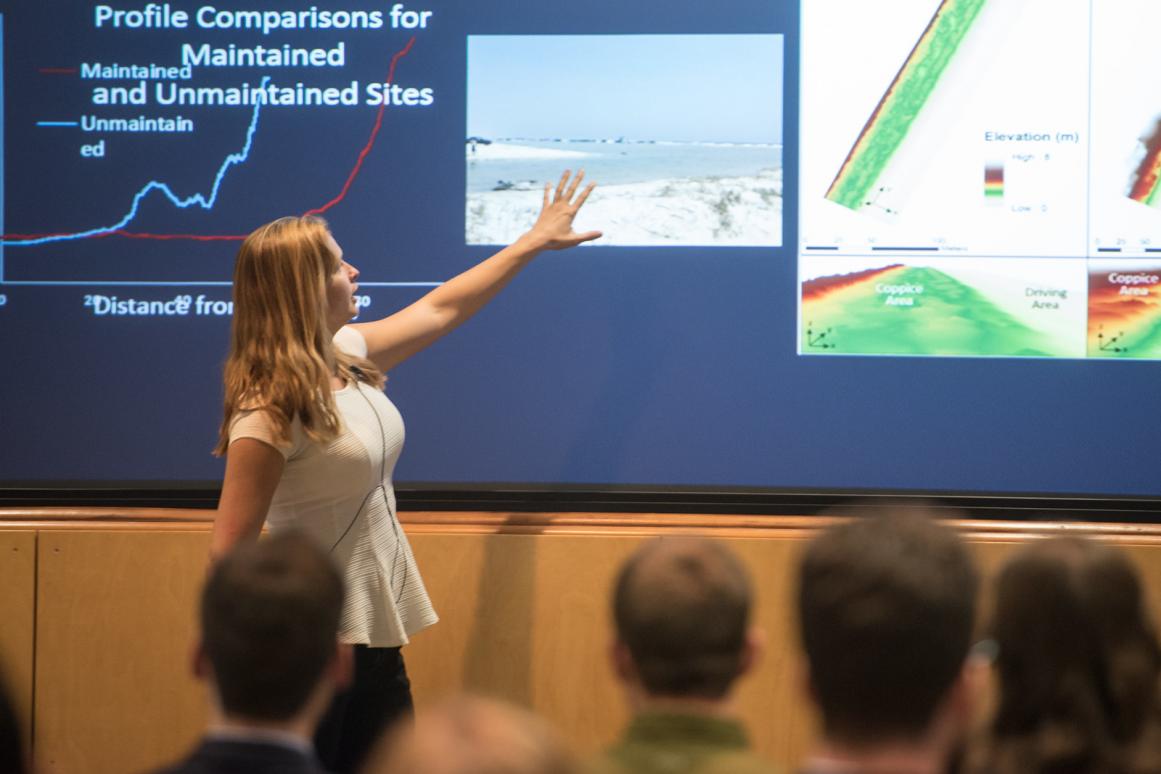HRI students take home awards at Graduate Student Week

CORPUS CHRISTI, Texas — HRI students took home honors at the Texas A&M University-Corpus Christi College of Graduate Studies' 4th annual Graduate & Professional Student Appreciation Week, Monday, April 3 through Friday, April 7. A series of events honored and recognized contributions made by Islander graduate students, including an awards luncheon and a proclamation by the Mayor of Corpus Christi. The highlight of the week was the Master’s 3-Minute Thesis Competition (3MT), held April 6.
The competition showcased research of six A&M-Corpus Christi graduate students, including HRI NOAA CCME Fellows & M.S. Students Melanie Gingras, who is working under Endowed Chair for Coastal and Marine Geospatial Sciences Dr. Jim Gibeaut, and Alex Tompkins, who is researching in the Center for Sportfish Science and Conservation under HRI Endowed Chair for Fisheries and Ocean Health Dr. Greg Stunz. Competing for a grand prize of $500, each student was allowed three minutes to present a compelling summarization of their research using a single PowerPoint slide without any props or electronic media. Contestants were judged based on comprehension, communication and audience engagement. Guest judges included: Dr. Don Albrecht, A&M-Corpus Christi’s Vice President of Student Engagement and Success; Karen O’Connor Urban, Community Advocate and Past President of the A&M-Corpus Christi Foundation Board; and Susan Ochoa Spiering, Attorney and President of Ochoa and Associates, PC.
Tompkins took second place with his presentation, “Saving Red Snapper One Drop at A Time,” and Gingras took third place with her presentation, “Small-scale Morphodynamics of Maintained and Unmaintained Beaches on Mustang Island.”
HRI's Melissa Rohal, a Ph.D. student under HRI Endowed Chair for Ecosystems and Modelling Dr. Paul Montagna, was also honored for placing first among Ph.D. candidates at the 3 Minute Thesis competition. Rohal analyzes the ecosystem services of worms and other invertebrates living in the Gulf's sediments. These creatures provide the base of the food web across the Gulf, with some communities more heavily impacted than others after Deepwater Horizon.
For more information read the Texas A&M University-Corpus Christi press release here.
